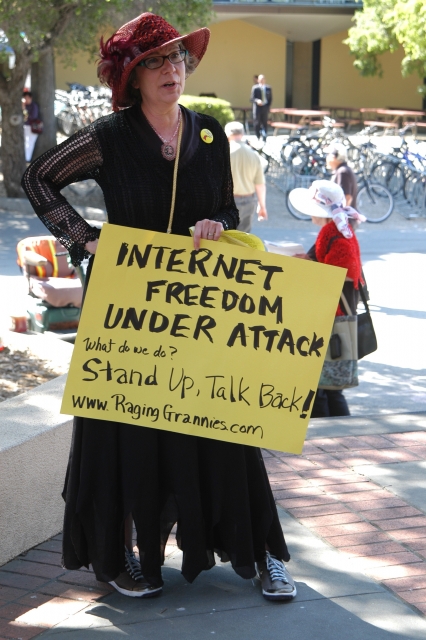Ezra Klein has an interesting set of comments on his blog relating to the costs of biologicals and the possibility of creating generic biologicals to cut those costs.
Representative Henry Waxman's website provides some interesting information on pending legislation.
As I understand the situation, the biotechnology revolution has allowed industry to develop and market a number of new products that differ substantially from earlier drugs. The earlier industry was based on the chemical synthesis of biologically active molecules. These tended to be small and comparatively simple. If two chemical processes produced the same molecule, the biological activity would be the same.
Biologicals, by contrast, are produced in cell culture. The molecules tend to be large and complex. Two processes which produce molecules which have the same sequence on the main chain may have differently associated sugars or other different properties, and as a result have different risks to the patient and different efficacy.
Because of the differences between traditional pharmaceuticals and biologicals, the approval process for generics has to be different. For the small simple molecules, the generic approval process depends primarily on showing that the active ingredients are chemically the same as the previously approved proprietary product. For biologicals, the process would involve not only showing similar chemical structure, but also showing that the generic was comparably safe and efficacious to the already approved proprietary product, a much more difficult and expensive process.
Drug pricing is a complex process. In the case of generics, competition tends to bring prices down to the cost of production plus a relatively modest profit. Of course, the generic producers are not amortizing investments in research, development and testing of new pharmaceutical products in their prices.
In the case of proprietary products, pricing is based on the cost of alternative treatments and the added benefits that the specific products provide over those alternatives. For biological products now on the market, these prices can be very high, since often there is no effective alternative and the health benefits can be very significant. The companies justify that pricing as needed to justify the high costs of research, development and testing of new biologicals, and the fact that only a very small portion of the research results actually lead to development of successful new products.
Pending legislation, which is controversial, would allow the FDA to set new rules for licensing generic biologicals. On the one hand, there is considerable interest that this be done quickly so as to see competition ariving quickly to drive down the prices of biologicals, which are already represent a significant portion of all drug expenditures. On the other hand, there is some controversy on how to create the legislation that allows and requires the FDA to create good rules.
I find the situation interesting in that the core is a knowledge process. A regulatory agency is to define rules which allow the determination that product A is equivalent to product B, and that the safety and efficacy information that was at great cost developed to justify the acceptance of product B can be taken to also justify the acceptance of product A.
From the point of view of the research intensive pharmaceutical industry producing new biologicals, the issue is one of intellectual property. The stricter the requirements imposed to demonstrate equivalence, the longer their monopoly control of the market created by their original products, the less incentive for generic producers to compete with those products, and the greater the price that the generic manufacturers will have to charge to justify their investment in the production of their generic products. Thus the producer of the original patented product is likely to have a longer stream of higher profits the more stringent the requirements to prove equivalence of the proposed generic alternative.
From the point of view of the patient, the complexity of the process for demonstrating equivalence has a different complexion. A less stringent process demonstrating equivalence should result in lower costs of biologicals but greater risks of lower efficacy or higher medical risks.
This will probably result in some very interesting international issues. Different countries will come to different decisions as to the right balance between cost to the patient and risks faced by the patient, due to factors such as differences in ability to pay, differences in attitude toward medical risks, and indeed differences in those actual risks. Different countries will also come to different decisions as to the degree to which they wish to favor the pharmaceutical industry producing new products versus the generic pharmaceutical industry. Then the trade representatives of the governments of these countries will go at each other in venues ranging from the World Health Organization to the World Trade Organization.














